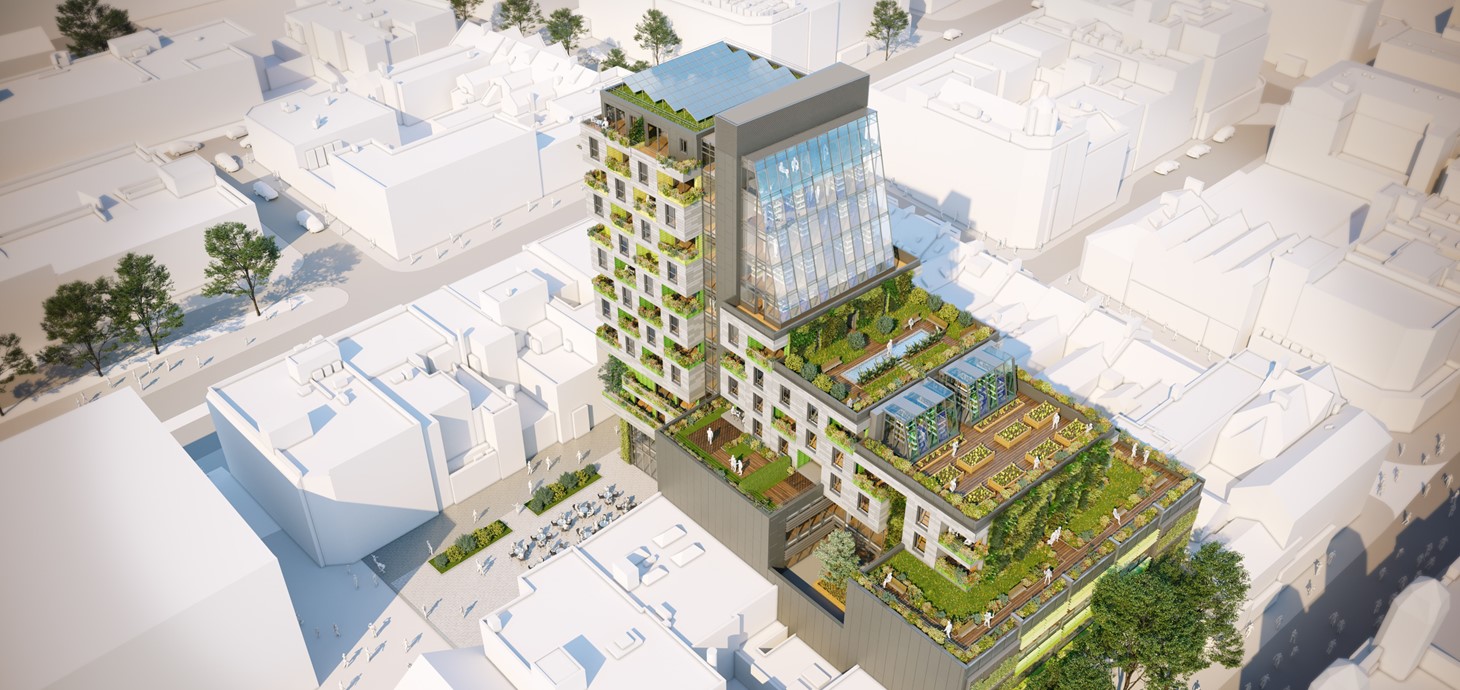
Swansea University has been awarded £3m by the Arts and Humanities Research Council (AHRC) to lead a major new project that will explore how nature can help cities adapt to climate change.
The four-year project is one of just three across the UK chosen for funding through AHRC’s new Mission Awards. It takes a fresh, collaborative approach to research, developed with input from societal partners and experts from a wide range of fields.
Called ‘Retrofitting for the Future: Nature-Based Solutions for Climate Adaptation’, the project will look at how cities and their citizens can become healthier, greener, and more resilient by building stronger connections with nature. This includes rethinking how we design and reuse buildings and public spaces – bringing in natural elements like plants, water, and daylight to improve wellbeing and support the environment.
At the heart of the project, spanning the city and region of Swansea, is the transformation of a 13-storey building in Swansea’s city centre. Once a Woolworths store, the Biome building on Oxford Street is being turned into a vibrant mixed-use building with social housing, retail, low carbon commercial office space as well as community, education and exhibition facilities – all designed to re-connect people with nature.
A first for the UK, this retrofitted "living building" will serve as a hands-on example of how old urban spaces can be repurposed to tackle climate change and boost community wellbeing.
The project is part of a new initiative by the AHRC that focuses on teamwork and shared leadership, rather than traditional top-down research models. It brings together a wide-ranging team from different sectors, including academia, construction, housing, ecology, public health, and the arts.
Kirsti Bohata, Professor of English at Swansea University, said: “I’m thrilled to be working with such a talented group of researchers and societal partners. This project shows how the arts and humanities can address big challenges and improve lives. It’s exciting to be one of the first teams funded through this bold new scheme from the AHRC.”
The research has been developed together with local and national partners to make sure it reflects real community needs and experiences. Local schools, councils, health services, businesses and housing organisations will continue to play a central role throughout the project.
Carwyn Davies of Hacer Developments said: “The Biophilic Living project is a truly unique initiative that has the potential to transform how we shape our urban environments. By placing health, wellbeing, and sustainability at the heart of the concept, we aim to create spaces that are not only functional but also nurturing for those who live and work in them.
“This award marks a significant endorsement of the vision and potential impact of biophilic living. The opportunities it creates for innovation, collaboration, and long-term positive change cannot be overstated.”
The consortium of co-leads are University College London, University of Wales Trinity Saint David, Hacer Developments Ltd, Pobl Group, City and County of Swansea Council and Natural Resources Wales along with other local and international partners from industry, health, education, policy, government and the arts.
